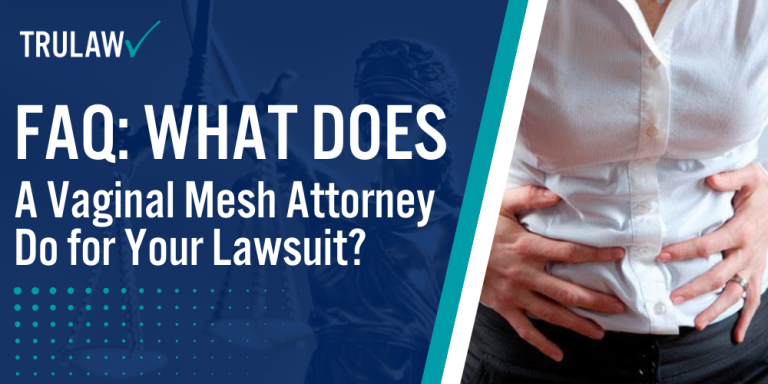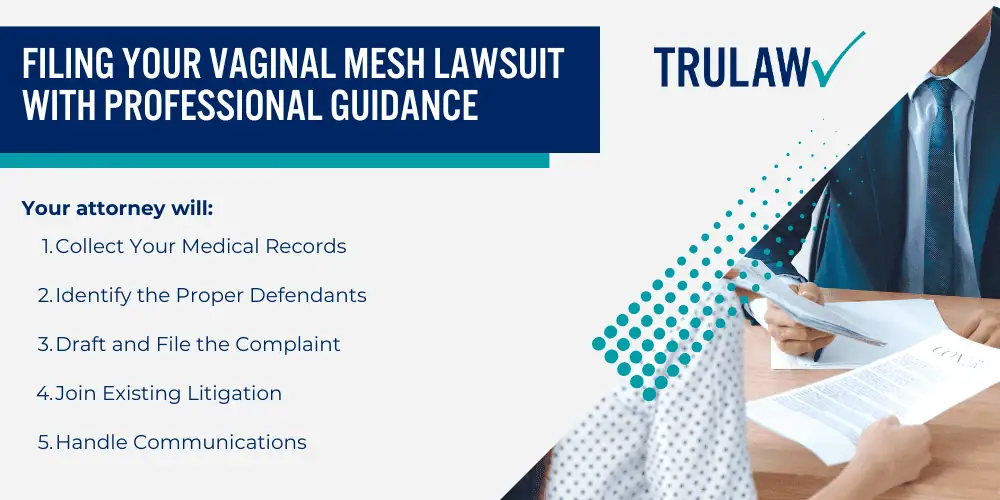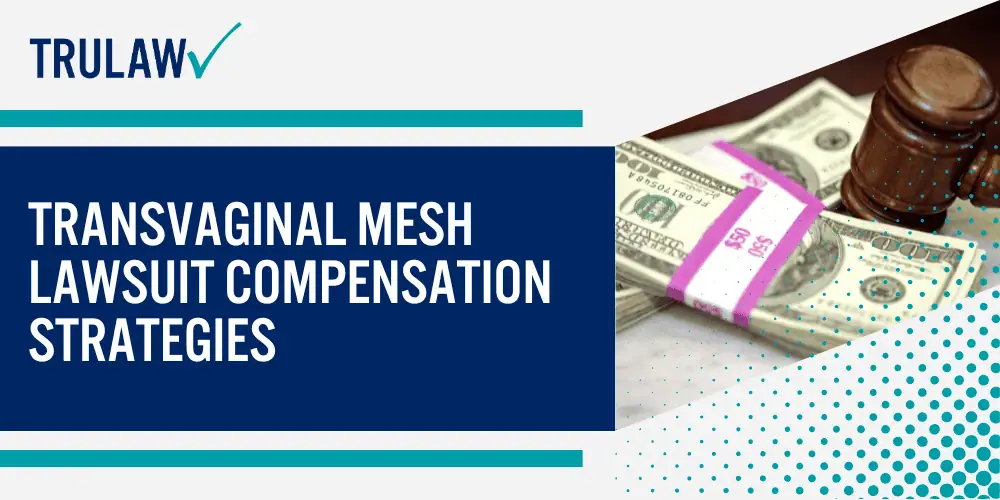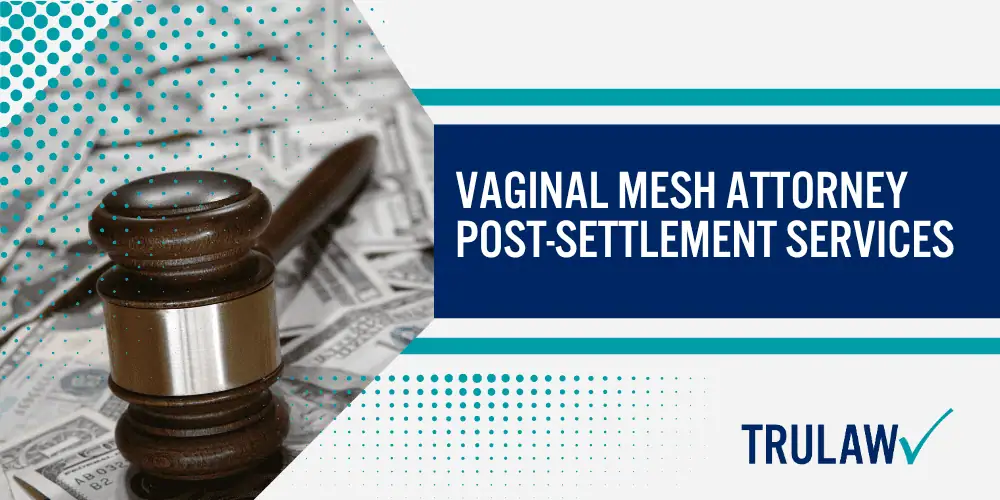The FDA has taken strong action regarding transvaginal mesh products, ordering manufacturers to stop selling these devices due to safety risks.
The filing process begins with our free instant case evaluation, where we gather essential details about your mesh implant and its resulting complications.
TruLaw partners with vaginal mesh litigation leaders to provide you with the legal resources and support necessary for a successful outcome.
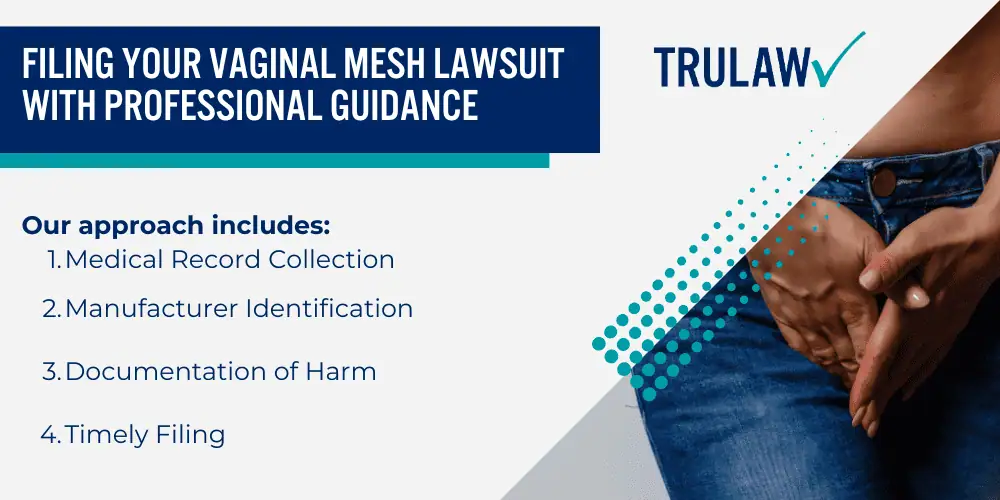
Our approach includes:
- Medical Record Collection: We help gather all relevant medical documentation, including surgical records, follow-up visits, and treatment for complications.
- Manufacturer Identification: We determine which specific mesh product was implanted and the responsible manufacturer to properly target your lawsuit.
- Documentation of Harm: We work with you to thoroughly document all physical, emotional, and financial damages resulting from your mesh complications.
- Timely Filing: We ensure your lawsuit is filed within your state’s statute of limitations to protect your right to compensation.
TruLaw and our partner firms handle the legal paperwork and court requirements, allowing you to focus on your health while we manage the legal aspects of your case.
Building a Compelling Vaginal Mesh Injury Case
Creating a strong vaginal mesh case requires detailed evidence and expert testimony to demonstrate how the device caused your injuries.
The FDA has acknowledged that these devices “present potential additional risks compared to native tissue repair” and lack “a favorable benefit-risk profile,” providing a solid foundation for your case.
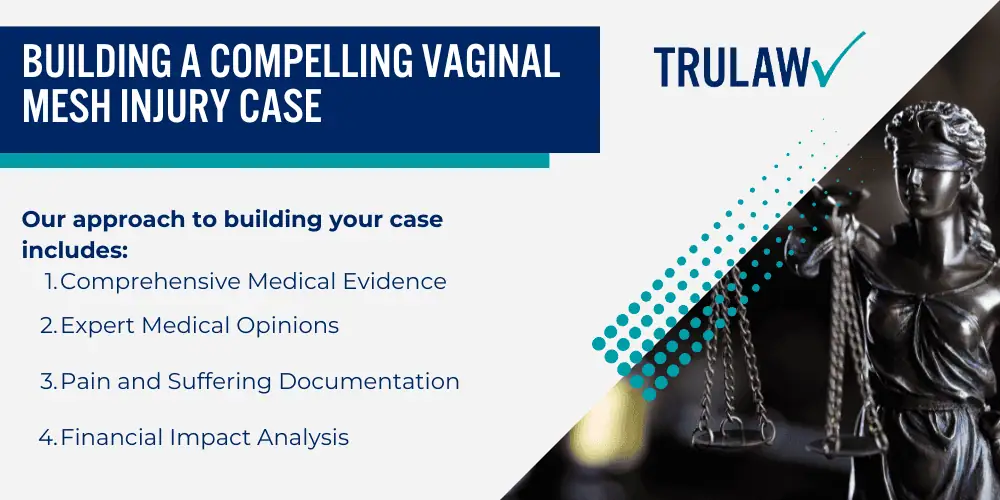
Our approach to building your case includes:
- Comprehensive Medical Evidence: We compile your complete medical history, including pre-implant conditions, surgical reports, postoperative complications, and ongoing treatment needs.
- Expert Medical Opinions: We work with medical specialists who can explain how the mesh device caused your specific injuries and why the manufacturer should be held responsible.
- Pain and Suffering Documentation: We help you create detailed records of how mesh complications have affected your quality of life, including physical pain, emotional distress, and impact on relationships.
- Financial Impact Analysis: We calculate your economic damages, including medical expenses, lost wages, and future care needs related to your mesh complications.
Settlement amounts have typically ranged from $150,000 to over $400,000, depending on case specifics, with some jury verdicts reaching into the millions.
If you or a loved one has experienced complications from transvaginal mesh, you may be eligible to seek compensation.
Contact TruLaw using the chat on this page to receive an instant case evaluation and determine whether you qualify to join others in filing a Vaginal Mesh Lawsuit today.
